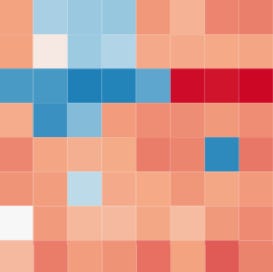Monthly Update: September, 2024
August posts, RhetVis course, VisML series, reading club, and summer readings.
I can’t believe summer is already over. It really flew by for me. Things have been quite intense here with FILWD projects and the start of the academic year.
Now that traffic seems to depend more on LinkedIn than any other social media (at least for what concerns FILWD), the summer registered some real slowdowns in terms of subscriptions. I did not expect that, but now I know. This is the first summer I have experienced since I started writing for FILWD seriously on a weekly basis. In a way, it’s good. It means people are really taking some time off, but the subscriptions tanked in a very unexpected way.
August Posts
Last month, I wrote two more posts on AI. The first was about the relevance of verification when using LLMs for data analysis.
I argue that verification is the main bottleneck and that we need to develop methods and tools to make verification easier. I also argue that the verification problem will not go away anytime soon.
The second AI-related post was another little experiment. I tried to see if LLMs can suggest questions to ask a data set, and it turns out it works incredibly well. I have been pondering the possible consequences of that.
Last month I also reported about the visualization summer school event we organized at Northeastern University.
We had many students from the New England area join us for two days of research-related activities. This is the second time we do that and I can envision continuing this tradition in future years. In the posts I provide details on the organization that can be useful to others if they want to organize a similar event.
Rhetorical Data Visualization Course
I am happy to report that my online course on Rhetorical Data Visualization has made a lot of progress. During the summer, I organized a group of beta testers to test three out of five course modules. We just concluded the test last Saturday, and it went incredibly well. Well beyond my expectations. We had two groups of 10 FILWD subscribers (for a total of 20) who watched the lectures, took the associated quizzes, and met with me (and the other participants) every day for three days. I plan to report more about what I have learned and what comes next, but I can safely say this first pilot was a big success. I received great feedback and am confident that the course provides unique skills.
VisML Series
My series on visualization for machine learning has been on pause for quite a while, primarily due to my focus on the course. However, I plan to restart soon. I have the draft of a post lined up and have been reflecting on what to write next. One challenge is that the next phase of the series will cover visualization methods for neural networks, and this is an area that changes incredibly fast, so I have to first keep up with some of the most recent advances.
Reading Club, Etc.
As I mentioned in a previous update, the reading clubs will pause for a while. I need to focus on developing my courses and the series for now. However, an interesting development here is something the beta testers of the course suggested to me the other day. They suggested starting a study club associated with FILWD. In a way, the reading clubs we had during the last few months before summer can be considered a prototype of something larger, like a recurring study club with events of different formats. The pilot participants enjoyed the live meetings and the interactive activities I designed. A study club could be based on these activities, and I could offer a membership option to give you access to it. I need more time to think about how to make it scalable and sustainable, but I think it’s an exciting idea.
Books I Read
I want to conclude by mentioning two great books I read this summer. The first is “Rework” by the 37 Signal founders. The book is all about the philosophy of work they developed in many years of building software like Basecamp. What I like is their unconventional advice, often going against common wisdom we hear about work and their direct and iconoclastic style. Their writing style is a breath of fresh air in a world frequently too prone to conformity and political correctness. What surprised me the most was how applicable their advice is to my academic work, despite being a quite different kind of setting. One of the book's highlights is their idea that “meetings are toxic,” an idea I share and try to always keep in mind.
The second book I read is “Chip War” by Chris Miller. The book tells the amazing story of how chips were invented and went from bulky boxes you could hold in your hand to microscopic units printed on silicon with light. The book describes the evolution of technology and the business and politics around it. Rarely have I read something that gave such a clear sense of how technological inventions are intertwined with business innovation and politics. The book covers the story of chips up to today and provides a clear understanding of the geopolitical implications of chip production. I have been struck by how little I knew about the history and significance of chips. It completely changed my perspective on how I see the role of chips in our modern world. Completely eye-opening!
That’s all for now. I look forward to interacting with many of you as we get back to work. I hope you’ll enjoy what I will provide in the upcoming weeks and months.






